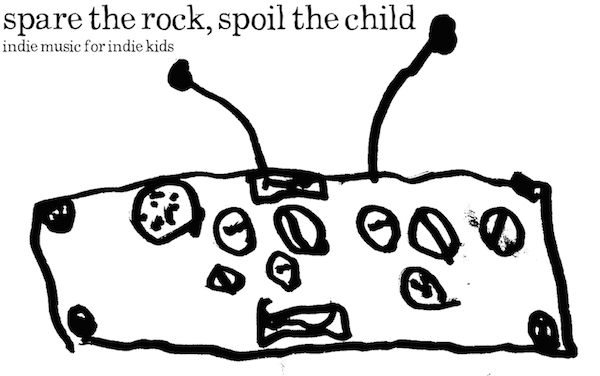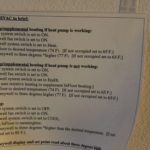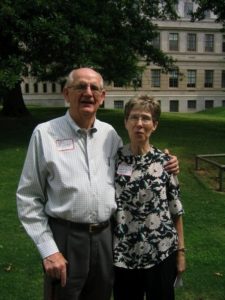Notes.
Dec 02
My dad, as many of you know, died in 2009, killed by pancreatic cancer just a few weeks after his diagnosis.
This Thanksgiving was the first time since then that we’ve had a chance to stay in the house that he and my mom had built for their retirement outside Fayetteville, Arkansas. So perhaps that’s why I was struck so thoroughly last week by how very present he remains in that house.
Some of that is just the ordinary emotional ephemera left by memories — even though they’d only been in the house for a half dozen or so years when he died — but some of it is the physical presence of the notes he left, pictured (in part) below.
I suppose his notes go back quite a while. I remember a note — probably futile, probably written knowing it was futile — pleading with us not to leave stuff on top of what we called alternatively the “plant cage” or the “alligator cage” (a structure he built for my mom to grow plants inside) in Oklahoma, probably 35 years ago. I still have trouble resisting flat surfaces that just plead for stacks of stuff.
I think there are more notes in the Arkansas house than either our Minnesota or Oklahoma homes, maybe in part because it was a new house with more than its share of problems, and maybe in part because his ataxia made communication more challenging — and mostly because he wanted to make the house a safe and comfortable place for family and friends.
He wanted guests (and my mom) to know how to use the toilet efficiently, and how to make the guest rooms comfortable, and how to use the electrical panel safely, and where my mom’s wedding gown was, and why guests don’t need to worry about the light in the bathroom (it’ll turn itself off two to three minutes after the last motion). He also (politely) wanted the mail carrier to firmly close the mailbox (that mailbox got repurposed as a garden tool holder). And he wanted guests to know how to use the HVAC system (as my friend Emily points out, the fact that the fifteen-point list of directions is identified as instructions “in brief” speaks volumes).
Our family when I was growing up wasn’t a completely organized and coherent thing all of the time. I don’t say that to be critical (at all), or to suggest anything bad, but just to observe. Our family now, with Dena and Ella and Liam, isn’t a completely organized and coherent thing all of the time. I think that’s actually a good thing; some chaos and surprise is good.
As much as my dad had an organized mind, I mostly think of him in his later years as having a slightly bemused look of delight at the chaos that results when you have a bunch of grandkids running around doing what a bunch of grandkids do. He might not have been as delighted with the chaos that we (okay, mostly I) introduced to his life earlier in life, but I think he (mostly?) found it more interesting than infuriating. I hope my kids remember me mostly being delighted with the changes in directions that we have experienced, even if I’m not always sure how to approach them.
I don’t leave a ton of notes around the house (though I do have Welcome to Nightvale-themed lunchbox notes). And my brain isn’t as organized as my dad’s was — far from it — so maybe I won’t. But I am grateful that — a few weeks from four and a half years from his death — I am still getting guidance and love from my dad.
Read More



 I stumbled out of bed, hearing a bunch of noise from the kitchen, and he was in there (at 5:45 or so), getting breakfast in bed together for me. “Happy Father’s Day, Dad,” he said, along with a hug. Unconsciously, I echoed my dad: “It’s been great.”
I stumbled out of bed, hearing a bunch of noise from the kitchen, and he was in there (at 5:45 or so), getting breakfast in bed together for me. “Happy Father’s Day, Dad,” he said, along with a hug. Unconsciously, I echoed my dad: “It’s been great.” More than I would have predicted, today – and the days leading up to it – have been more about my dad’s life than his death. Just as one example, we talked at dinner last night about the science fair projects I did every year with him, and my photo browsing has been a lot more focused on looking back at his 72 years rather than his last three weeks. What’s more, those conversations haven’t been like picking at a scab – we’re increasingly able to stay on the sweet side of the bitter/sweet continuum.
More than I would have predicted, today – and the days leading up to it – have been more about my dad’s life than his death. Just as one example, we talked at dinner last night about the science fair projects I did every year with him, and my photo browsing has been a lot more focused on looking back at his 72 years rather than his last three weeks. What’s more, those conversations haven’t been like picking at a scab – we’re increasingly able to stay on the sweet side of the bitter/sweet continuum.


